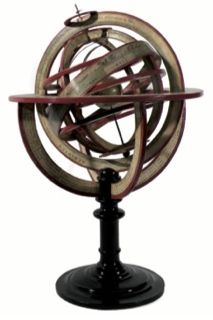PresentationThe role played by the Mediterranean area as a place of exchange that historically favored the development of sciences and technics has been sufficiently proven, but unfortunately this history hasn’t been easily accepted in the contemporary world. Besides, the contribution of scientists that operate in the Mediterranean area has been hindered by the fact that history and philosophy of science are rarely integrated in the academic tradition, and by the fact that the teaching of sciences is often too oriented towards technics and applied sciences. In order to better understand the significance of scientific exchanges and which traditions made them possible, it is essential to revitalize and support the interchange of ideas, building a corpus of resources that might be well organized and universally accessible. The promotion of studies in history and philosophy of sciences in the Mediterranean countries is a big issue, because many scholars are isolated, lacking access to sources but also acknowledgement of the role of their discipline in the academic system, where they usually teach other topics.
This conference will be primarily devoted to a presentation of fully developed or still in progress researches in history and philosophy of mathematics, and associated disciplines, in the Mediterranean area. Notwithstanding the disciplinary restriction, the conference aims to improve the understanding of the development of scientific thinking. The actual state of researches in history and philosophy of sciences shows that this development was not uniform: there has been some extraordinary phases, in which the development accelerated and increased considerably, new disciplines emerged offering new answers to old problems, and creating new areas of research. There is wide recognition of this phenomenon in the antiquity, in the Pythagorical school, in the 17h century Europe, or at the end of the 19th century. Yet, some questions remain unanswered concerning these “special phases”: how can they be exactly characterized? Are there other such phases? Should one, for example, add the period of invention of algebra in Bagdad? Are there some common traits to all such phases that might explain their special character, as for example a higher permeability of the borders between disciplines?
These general but essential questions will orientate the conference’s debate, calling attention to the types of problems faced by historians and philosophers of science, but also to their need to cooperate. Contributions are thus invited to address one or more of the questions listed under the following themes:
The conference has another general aim: to establish a Mediterranean research and documentation network that should promote the scientific intercourse in history and philosophy of mathematics, and associated disciplines. This network should dispose of productive tools, as for example a numerical collaborative platform installed on several interconnected servers. The platform should allow a cooperative work on several wikis, associated to research programs and with different access levels. Contributions concerning useful tools for electronic bibliographies, online publications, and creation of elementary modules of a collaborative research platform are welcome, especially if based on concrete experiences. |


